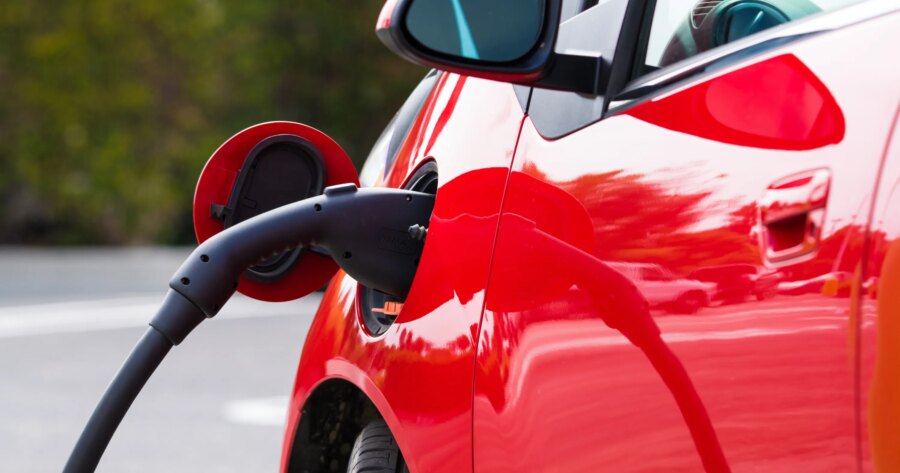With the growing focus on sustainability and innovation, electric cars have quickly become an appealing option for many drivers. Offering a cleaner, greener alternative to traditional gasoline vehicles, electric cars promise not only to reduce your carbon footprint but also lower long-term costs. Whether you’re looking for cutting-edge technology, impressive performance, or significant savings on fuel, an electric vehicle could be the perfect choice for your next car. Discover why going electric might be the smart move for your future.
Environmental Impact: Cleaner but Not Perfect
One of the primary reasons many people turn to electric cars is their potential to reduce carbon emissions. EVs produce no tailpipe emissions, which means they don’t directly contribute to air pollution while driving. However, it’s essential to note that the environmental impact of EVs depends on how the electricity they use is generated.
If charged with renewable energy sources, like solar or wind power, their carbon footprint can be significantly lower than gas-powered cars. On the other hand, if the electricity grid relies heavily on coal or natural gas, the environmental benefits may diminish somewhat.
Additionally, manufacturing EV batteries involves mining for minerals such as lithium, cobalt, and nickel, which can have ecological impacts. However, ongoing innovations in battery recycling and efforts to reduce reliance on scarce minerals are likely to improve the sustainability of EVs in the coming years.
Long-Term Cost Savings: A Possibility, Not a Guarantee
EVs are often marketed as being cheaper to run than gasoline vehicles, but whether this holds true depends on a few variables. Charging an EV at home, especially during off-peak hours, can be less expensive than filling up a gas tank. Many areas also offer incentives such as rebates, tax credits, or reduced charging rates to encourage EV adoption.
However, upfront costs for electric vehicles can be higher than those for traditional cars. Although federal or local incentives might reduce this expense, buyers should still consider long-term maintenance costs. EVs generally have fewer moving parts, which may result in lower maintenance expenses. Yet, battery replacement could be a significant expense after several years, depending on the model and warranty coverage.
Driving Range: Improving but Still a Concern for Some
While the range of modern EVs has significantly improved, it may not suit everyone’s driving habits. Some models can travel over 300 miles on a single charge, making them practical for road trips. However, others may only offer a range of 150-200 miles, which could feel limiting for those accustomed to long drives or who don’t have regular access to charging stations.
Planning is often required for EV owners, especially when it comes to longer trips. Charging infrastructure has expanded rapidly, with fast chargers appearing in more locations, but it’s still not as ubiquitous as gas stations. For those living in urban areas or who primarily commute short distances, an electric car’s range may be more than sufficient. However, rural drivers or frequent travelers might need to carefully weigh whether an EV aligns with their needs.
Convenience and Charging Options: A Mixed Bag
Charging an electric car can be both a convenience and a challenge, depending on the circumstances. For individuals with access to home charging stations, the ability to “fuel up” overnight offers significant convenience. It eliminates the need for frequent trips to gas stations and ensures the car is ready to go each morning. Workplace chargers are also becoming more common, offering another layer of flexibility.
On the flip side, those without access to home or workplace charging may find the experience less convenient. Public charging stations, while growing in number, can sometimes be occupied or require long wait times. Additionally, fast chargers, which provide quicker top-ups, are not yet available everywhere. As charging networks continue to grow, these inconveniences are likely to diminish, but for now, potential buyers need to evaluate whether charging logistics will fit their routines.
Driving Experience: Quiet and Smooth, but Different
Many EV drivers report that the experience of driving an electric car is smooth and enjoyable. The lack of engine noise makes for a quieter cabin, which can enhance comfort on longer journeys. Additionally, EVs provide instant torque, meaning they accelerate quickly and smoothly without the need for gear shifts.
However, this experience may not appeal to everyone. Drivers accustomed to the sound and feel of a traditional gasoline engine may find the silence unsettling at first. Additionally, some sports car enthusiasts might miss the audible feedback that contributes to their driving enjoyment. The learning curve for regenerative braking—where the car slows down when the driver lifts off the accelerator—can also take time to adjust to. But for many, these differences become part of the appeal after a period of acclimatization.
Learn More About Electric Vehicles
Electric cars represent a growing and evolving part of the automotive landscape, offering a range of potential benefits for environmentally conscious drivers, commuters, and tech enthusiasts alike. However, the decision to switch to an EV requires thoughtful consideration of factors like charging access, driving range, and long-term costs.
While EVs are not a one-size-fits-all solution, advancements in technology and infrastructure suggest that they may become increasingly practical and appealing to a broader audience in the coming years. If you’re evaluating your options for a new vehicle, keeping an electric car on your list could open the door to new possibilities—both now and in the future.

